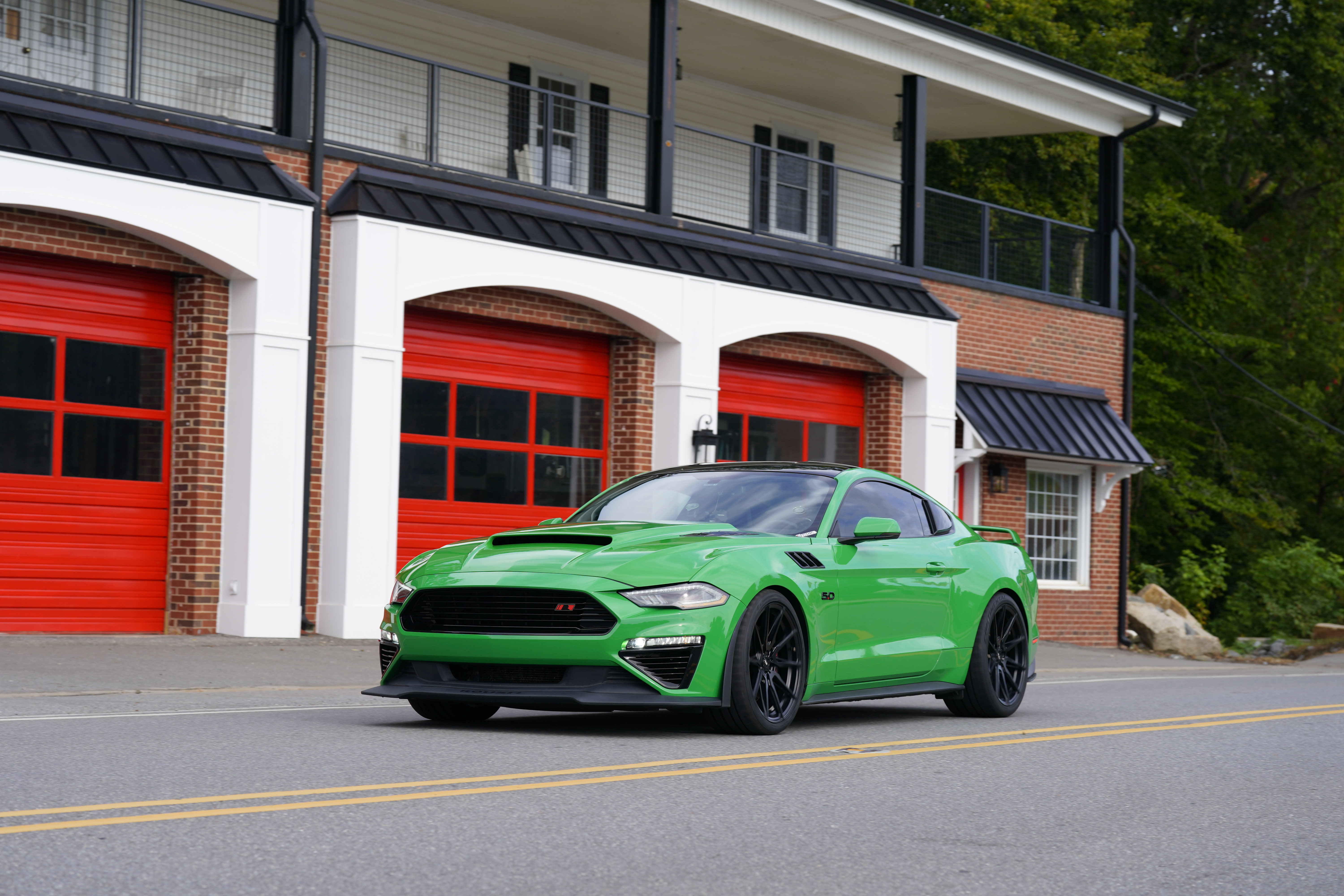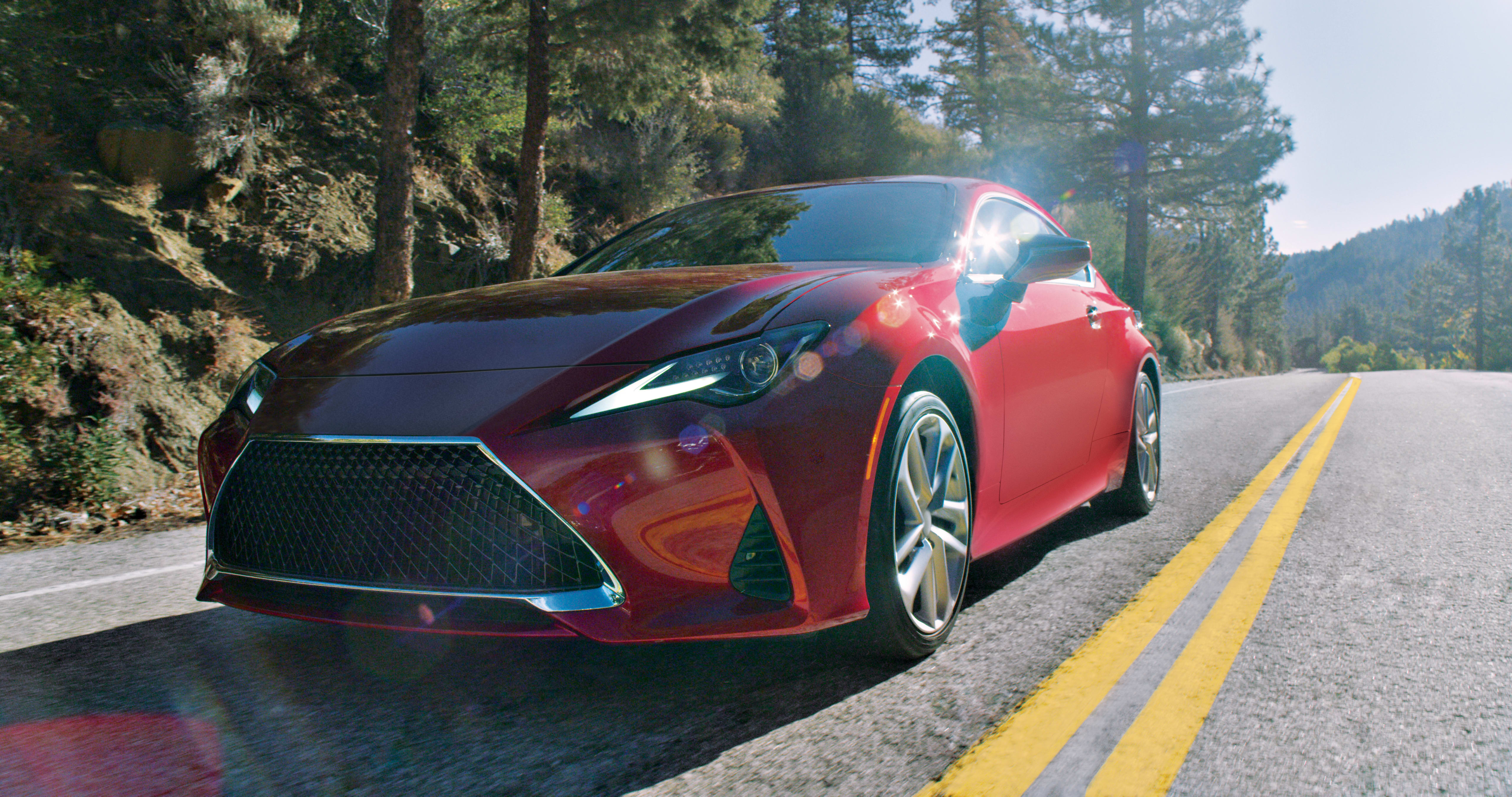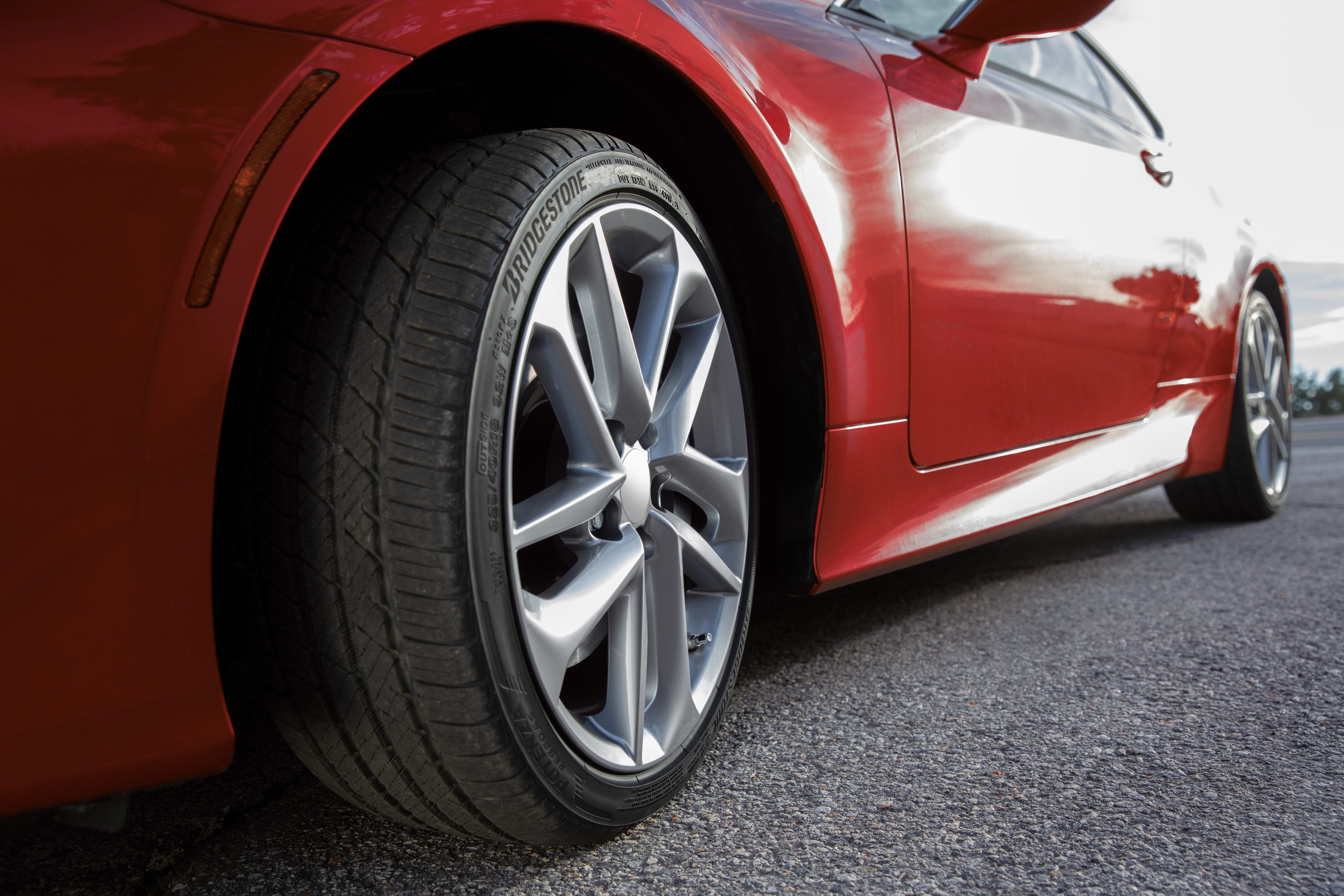Compare
Free shipping
Best price guarantee
SimpleCrew exclusive savings
0% financing options
Tire replacement coverage
24/7 roadside assistance
Easy returns

For most drivers, all-season tires are the perfect solution. If you’ve got a sedan, a minivan, or a crossover and need dependable day-to-day performance, all-season tires usually make the most sense as a jack-of-all-trades solution. They deliver long wear with a generous limited manufacturer’s tread life warranty, a quiet and refined ride, dependable year-round traction, capable and predictable handling, and road manners that are stable and secure. That’s more than enough for most drivers. Still, then, for drivers of sporty sedans, coupes, crossovers, and sports cars, those all-season tires fall just a little short of delivering the kind of handling, cornering, and braking that they need to be able to get the most out of their vehicles’ performance envelope.
Ultra-high-performance (UHP) tires are designed around the weight, horsepower, torque, braking, center of gravity, suspension, and overall driving dynamics of sports models. That means significant differences in internal construction, tread design, and rubber formulation, helping to enhance braking, steering response, and cornering traction for those tires. There are some significant drawbacks to UHP tires, which we’ll get into shortly, which is why UHP all-season tires are such an attractive option for many drivers. Let’s go in and take a closer look:
The Difference Between Ultra-High-Performance All-Season and Ultra-High-Performance Summer Tires

So, a UHP tire is designed around one directive: enhancing the driving experience for high-performance vehicles. As good as UHP tires are at what they’re designed for, they do come with some tradeoffs. UHP tires use a tread formulation that’s softer and “stickier” for improved adhesion to the road. In some cases, the tread compound is almost as soft as a pencil eraser, and pressing a thumbnail into the sidewall rubber can be enough to leave an indentation momentarily. That soft tread compound delivers excellent traction for braking and handling. Still, it’s also soft enough to wear prematurely, so many summer UHP tires don’t come with a limited manufacturer’s tread life warranty. The other problem with the tread formulation of UHP summer tires is that it will stiffen up and lose traction on colder days, making them very unsafe (think about a flexible rubber boot sole on a slick road vs a hard rubber hockey puck). Tire manufacturers recommend not using summer UHP tires with temperatures below 40-45 degrees F. And, of course, if you find yourself in that situation, you’ll have to have those UHP tires dismounted and exchanged for something more friendly to year-round driving, like all-season or all-weather tires, then you need to figure out how and where to store the UHP tires until cold weather is over.
The other thing that’s a problem with many (not all) UHP tires is ride quality. UHP tires are designed to have a more rigid sidewall and tread face for optimized handling and cornering. The momentum of a vehicle means that it will try to keep moving in a straight line as you negotiate a turn, and the stress of that momentum and inertia will distort and deform the tire’s shoulder and tread in a phenomenon called “tread squirm”. Sometimes, the inboard side of the tire’s contact patch can leave the pavement completely. A more rigid shoulder and tread are needed to combat tread squirm, but unsurprisingly, a firmer sidewall, shoulder, and tread also mean a firmer, less forgiving ride quality.
At one time, fitting a performance car with a set of all-season tires would have been inconceivable, like making an athlete wear Homer Simpson’s brown shoes and expecting him to play well. Considering how much time and effort vehicle design teams put into fine-tuning drivetrains, tweaking chassis and suspensions, damping, braking, and all the other variables of a performance car, all around a certain kind of tire, it would seem crazy to compromise on that equation.
Times have changed, though, and today’s UHP all-season tirescomplement a performance vehicle’s driving dynamics and exceed an enthusiast driver’s expectations. The best premium UHP all-season tires will deliver the same kind of road feel, nimble steering response, driver feedback, predictable cornering, and short braking distances as you’d expect from a modern UHP summer tire, but with the versatility of year-round grip and a more refined, comfortable ride. The better UHP all-season tires might only fall short when compared to UHP tires at the end of the performance scale, i.e., ones designed for the track and the street.
Along with the difference in tread compound and internal construction, UHP all-season tires will typically also have some differences when it comes to tread pattern, with a more robust system of circumferential and angled/lateral grooves to help resist hydroplaning by channeling water away from the tire’s contact patch. Many also incorporate sipes, a network of hair-thin slits that multiplies the tire’s surface area and traction and allows it to get a better grip in snow and slush (as well as helping to stabilize the tread area).
UHP All-Season vs. UHP Summer Tires Fuel Economy
For a couple of decades now, tire designers have prioritized fuel economy. Rolling resistance is crucial to those calculations – the amount of energy expended to get a vehicle moving and then keep it headed down the highway. In other words, rolling resistance is a more technical term for friction, and as a rule of thumb, tires with a more aggressive tread will also have greater rolling resistance. UHP summer tires tend to have a less complex tread design with shallower grooves, translating to a 10-20 percent improvement in rolling resistance and a 2-4 percent boost in fuel economy. However, what was once a rule of thumb and conventional wisdom can change.
Today’s all-season and even winter tires can be designed for decreased rolling resistance thanks to more lightweight construction, tread formulations, and tread and shoulder designs. For a UHP all-season tire designed specifically for reduced rolling resistance, enhanced fuel economy (and lower hydrocarbon emissions), there can be a negligible difference between what they can deliver and a UHP summer tire regarding this performance aspect.
UHP All-Season vs. UHP Summer Tires in Rain
When the subject turns to wet-weather traction, it all depends on the kind of UHP summer tires you’re talking about. At the end of the performance spectrum are tires designed for the track and competition and the street (autocross, gymkhana, time trials, those kinds of events). These tires feature a shallower tread and simpler groove design derived straight from the motorsports world; you can essentially think of them as DOT-approved racing tires for street use. Some of those styles of UHP tires are designed specifically for dry pavement, and the manufacturer recommends against using them on wet roads.
Most other UHP tires, however, are designed for enhanced traction on wet or dry pavement, and the stickier tread formulation of UHP summer tires can sometimes help deliver a tenacious grip on wet pavement. UHP all-season tires are designed for year-round performance, meaning capable traction in wet, dry, or light wintry conditions. The short answer here is this: if you’re looking at UHP summer tires that aren’t specifically for track and street, you’ll likely get the same capable performance on wet pavement that you would expect with a set of UHP all-season tires.
UHP All-Season vs UHP Summer tires tread life
Regarding tread life, there’s a big difference between UHP summer tires and UHP all-season tires. As mentioned above, UHP summer tires' tread formulation isn’t intended to provide long service. It’s softer and more pliable, and the combination of hard pavement and high speeds is enough to grind away at their tread quickly. Consumer Reports has noted that most summer tires last about 34,000 miles, with some having tread life as low as 25,000. Most UHP summer tires do not come from the factory and have limited manufacturer tread life coverage for that reason. It’s not surprising that they’re considered to be specialized tires designed for seasonal use and then removed for colder weather.
UHP all-season tires don’t have this drawback; like their all-season and Grand Touring brethren, they’re designed for good wear properties and long, even tread life. Some UHP all-season tires have treadwear coverage of as much as 40,000-60,000 miles, compared to maybe 30,000 miles for a UHP summer tire (if it’s covered by a treadwear warranty). So, if longevity is a concern for you, that could be a deciding factor.
When to use each
The question is: What kind of vehicle are you driving? What are your driving habits? What are your expectations? If you’ve got a sports car, sporty sedan, or performance-oriented crossover, you probably already know that most all-season and Grand Touring tires won’t give you the kind of braking, steering response, cornering, and driver feedback you need to get to the limits of your vehicle’s potential.
Are you okay with shorter tread wear and exchanging your tires for a different set when the temperatures drop? Or do you need a set of tires that deliver UHP performance, but you can use them year-round? Those are questions you can only answer when it’s time to get a set of tires.
Which one should you choose?
As we mentioned, most drivers prefer all-season tires for their versatility and docile, composed behavior on the road. It’s just that most all-season tires can’t quite get the job done for drivers of performance vehicles and won’t allow them to crowd the performance envelope as well as they’d like to. Still, many of those drivers would love to have that kind of year-round Swiss Army Knife solution for traction, ride quality, longevity, road manners, and low noise, coupled with the sharp, precise handling of a UHP tire. If that sounds like you, maybe UHP all-season tires are the way to go.
If, on the other hand, you want the performance benefits of a UHP tire and like to be able to go into a corner with handling that’s as accurate and precise as if your car’s on rails…and you don’t mind shorter tread life, a firmer ride, and seasonal use. Maybe you should consider UHP summer tires. The performance gap between the two designs has just about closed (at least if you’re talking about premium-grade tires from top brands), but some drivers do prefer what a motorsports-derived UHP summer tire has to offer.
Ready to find the perfect tires?
Search By

